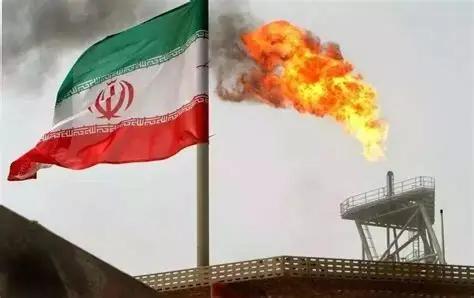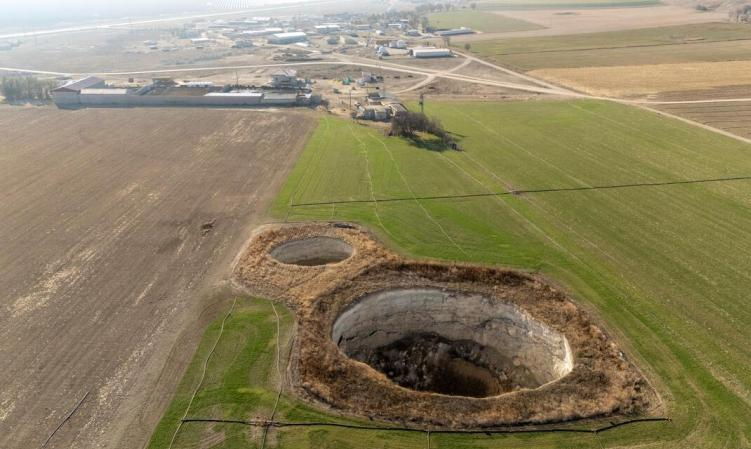
The drama of sanctions and counter-sanctions on the international diplomatic stage is once again playing out. Behind the verbal battles between the UK, France, Germany and Iran lies the increasingly intensified deep-seated contradiction of the Iranian nuclear issue. The UN sanctions against Iran officially came back into effect on September 28th, marking another escalation of the Iranian nuclear issue. According to the confirmation of the Office of the Spokesperson for the UN Secretary-General, all six Security Council sanctions resolutions related to Iran, including No. 1696 and No. 1737, have been restored to effect. These resolutions cover areas such as Iran's nuclear program, military industry and finance.
In August, the UK, France and Germany launched the "Quick Resumption of Sanctions" mechanism, triggering the sanctions on the grounds that Iran violated the nuclear deal. This mechanism stipulates that unless the Security Council passes a new resolution on continuing to lift sanctions against Iran, the UN sanctions imposed on Iran before 2015 will be automatically reinstated within 30 days.
In a joint statement, the UK, France and Germany warned Iran not to take "escalation actions", but at the same time emphasized that "reimposing sanctions does not mean the end of diplomacy", and stated that they would continue to seek new solutions through diplomatic channels. Three European countries have urged Iran to refrain from taking any escalation actions and to resume compliance with its legally binding safeguards obligations.
The Iranian side reacted strongly to this. Iranian Foreign Minister Aragzi criticized Western countries for attempting to force Iran to submit through coercion, accusing the United States of being "greedy, illogical and shameless". Aragzi also wrote to UN Secretary-General Antonio Guterres, calling on the UN to prevent Western countries from abusing its mechanism.
Ironically, Iranian President Pezhishiyan disclosed that during the UN General Assembly, the United States had demanded that Iran hand over all its enriched uranium in exchange for a three-month "moratorium on sanctions", a demand that Tehran regarded as "absolutely unacceptable". Meanwhile, in his speech at the Security Council, the Iranian Foreign Minister pointed out sharply that Israel is the only country in the region possessing nuclear weapons, while the three European countries and the United States have long distorted Iran's peaceful nuclear program.
The impact of the re-entry into force of sanctions on Iran may far exceed what is seen on the surface. Li Zixin, an assistant researcher at the China Institute of International Studies, pointed out that compared with before the signing of the Iran nuclear deal in 2015, the international pressure and sanctions Iran is currently facing have only increased. Although the impact at the specific practical level is limited, the nature of the sanctions has changed significantly - in the past, it was mainly the United States and Europe that imposed unilateral sanctions on Iran, but now it is under the name of the United Nations, which makes it more difficult for Iran to respond to the sanctions or take evasive measures.
What is even more worrying is that the cooperative relations established by Iran with its neighboring countries through the North-South Corridor and the implementation of a good-neighborly policy may face serious challenges against the backdrop of the resumption of UN sanctions. Relevant countries may suspend cooperation and trade with Iran for fear of violating UN resolutions, which undoubtedly adds insult to injury for Iran's economy.
In response to the resumption of sanctions, Iranian President Pezhishiyan said that Iran has made necessary arrangements to deal with the activation of the "rapid resumption of sanctions" mechanism. The "resistance economy" policy that Iran has long pursued will face a real test. Analysis suggests that due to the sanctions imposed by the United States for over 40 years, Iran has established an independent "self-reliant" economic system outside the international economic and trade system. Therefore, although the resumption of economic sanctions may have adverse effects on Iran's economy and society, it is unlikely to cause fatal damage.
At the international level, countries such as China and Russia continue to call for a diplomatic solution. Geng Shuang, China's deputy Permanent representative to the United Nations, emphasized that dialogue and negotiation are the only way out. Iranian Foreign Minister Araghchi also expressed his special gratitude to China and Russia for presenting the draft resolution, "making sincere efforts to reserve space for diplomatic dialogue and avoid confrontation and conflict."
The resumption of UN sanctions not only failed to solve the Iranian nuclear issue, but also pushed the confrontation between Iran and Western countries to a new high. Britain, France and Germany grandiloquently claimed that "sanctions do not mean the end of diplomacy", while resolutely implementing the sanctions. Iran, on the other hand, was not to be outdone and explicitly rejected the US demand for "handing over all enriched uranium in exchange for a three-month moratorium on sanctions".
In this crisis, the real loser might be international diplomacy itself - when sanctions become the first choice rather than the last resort, the space for dialogue and negotiation is sharply compressed, and the prospects for a peaceful settlement of the Iranian nuclear issue are even dimmer.

Due to the continuous decrease in rainfall and the rapid drop in groundwater levels, several large sinkholes have successively appeared in several agricultural areas in central Turkey in recent years, causing great concern among local farmers and environmental experts.
Due to the continuous decrease in rainfall and the rapid dr…
The Prime Minister's Office of Israel said Hamas attacked I…
Fourteen countries including the United Kingdom, France and…
The US Department of Justice said on Wednesday (December 24…
The Japanese government has submitted a draft, planning to …
On December 25th local time, NVIDIA announced a technology …